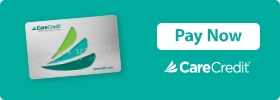Herniated Discs
Discs serve as cushions of support between the vertebrae of the spine to decrease the impact of movement on the spinal column. Each disc has a softer center encased with a tougher exterior, much like a jelly donut. When this jelly-like center ruptures, the condition is referred to as a herniated disc and can result in back and neck pain. If the herniation is large enough, it can compress the spinal nerves that exit the spine, which causes the associated symptoms.
Causes
![]() Typically, the cause of a herniated disc is the everyday wear and tear of the disk from repeated movements. As we get older, the spinal discs lose a portion of their water content, which makes them less supple and more vulnerable to splitting. There are some factors that increase one’s likelihood of developing a herniated disc which include:
Typically, the cause of a herniated disc is the everyday wear and tear of the disk from repeated movements. As we get older, the spinal discs lose a portion of their water content, which makes them less supple and more vulnerable to splitting. There are some factors that increase one’s likelihood of developing a herniated disc which include:
- Being overweight adds additional stress to the lower back, making a herniated disc more likely.
- Genetics can be a factor as a predisposition to this condition can be inherited.
- Certain occupations put people more at risk, such as those that are physically demanding and require pushing, pulling or twisting.
Symptoms
Some people with a herniated disc have no symptoms while for others, the pain can be debilitating. Many herniated discs are found in the lower back, although they can be present in the neck, or cervical spine, as well. Common signs and symptoms of this condition include the following:
- Weakness – This occurs as the muscles served by the affected nerve begin to weaken. You may notice stumbling when you walk and difficulty lifting or holding on to items.
- Numbness or Tingling – As a herniated disc can affect the nerves, the body part that relies on the affected nerve can experience this symptom.
- Pain – If your herniated disc is in your neck you may experience pain in your arms or shoulder, and if located in your lower back you may feel pain or discomfort in your calf, thigh or buttocks. At times, even the foot experiences pain, and these pains may shoot through your body when you cough, sneeze, or move your spine into certain positions.
Treatments
![]() There are a variety of treatment options available for the pain management of herniated discs. Treatment doesn’t involve just one specialty, as physical therapy and chiropractic therapy are valuable components in pain management as well. Common treatment options available include:
There are a variety of treatment options available for the pain management of herniated discs. Treatment doesn’t involve just one specialty, as physical therapy and chiropractic therapy are valuable components in pain management as well. Common treatment options available include:
- Medication Management – Patients receive a comprehensive review of their symptoms by pain management specialists to determine the medications that will effectively relieve pain related to herniated discs.
- Physiotherapy – Also known as physical therapy. It is a specialty in physical medicine and rehabilitation that works to remedy impairments and promote function, mobility, and quality of life. A physical therapist can create an individualized rehabilitation program for you and get you back to doing your daily activities.
- Chiropractic Care – Licensed chiropractors work not only to treat your symptoms but your body as a whole. They use a combination of techniques to treat nerve, joint and muscle problems.
- Injections – These include epidurals, nerve blocks and joint injections. The injections are placed at the source of pain and typically contain a low-dose steroid medication to decrease inflammation causing pain. To decrease discomfort during an injection, your treatment specialist will use a numbing agent, typically lidocaine, to the area prior to an injection.
- Spinal Cord Stimulation – This implantable medical device sends a mild electrical current to your spinal cord. This current alters the way in which your body perceives pain, relieving pain associated with herniated discs.
- Percutaneous Electrical Nerve Stimulation (PENS) – This device is an electrical stimulus generator that also works to alleviate pain associated with herniated discs. Electrical impulses are used to block the transmission of pain to nerve fibers. It is also thought that this unit may stimulate the release of serotonin or endorphins in the brain, alleviating perceived pain. For this therapy, needle electrodes are inserted near the nerves that serve a painful area and the unit transmits various configurations of electrical impulses through them.
If you think you may have a herniated disc, we encourage to contact Allied Pain & Spine Institute today to schedule a consultation.

